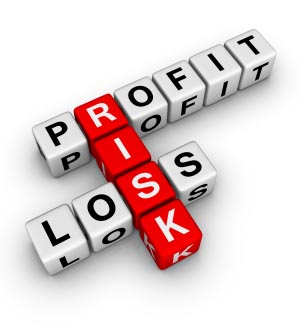
What Are Penny Stocks?
Penny stocks are shares in smaller companies that are often less heavily traded and tend to be less expensive – under $5 a share, for example. Penny stocks are traded in environments that are more volatile and less liquid than the larger traded stocks, and this provides opportunities for more capital growth and more volatile trading. Penny stocks are not specifically defined as such, and simply refer to low priced stocks which some traders choose as the focus of their investment strategy as a means of lowering the risk profile and delivering higher rates of return in capital.
What Are The Advantages?
Trading penny stocks as a strategy can be a lower risk way to access the markets. When traders buy in to FTSE100 or Dow Jones companies, it tends to be the case that these companies are already established and are priced fairly statically over time. Penny stocks are often smaller companies that are growing, and the markets for their securities are less liquid and less heavily populated. This makes it possible to see lower risk, higher volatility trading, which can often outstrip growth amongst larger asset prices. And, because each share is lowly priced, traders can engage in markets for penny stocks without exposing too much of their capital to these smaller, quirkier markets.
Shares Liquidity
When you’re trading in unpopular shares, which usually belong to smaller, more financially volatile companies, the first problem that traders should be wary of is liquidity in the market. Liquidity is the rate at which an investment can be sold for cash, and is represented by the duration between order and execution through your trading platform. If there are low trading volumes in a market, you will have to wait longer for your order to be fulfilled – the market will be less liquid, and therefore more susceptible to slippage over the duration of each order. For any trader, knowing you can sell your investment is as important as knowing you can buy it, and in low liquidity markets you run a higher risk of being unable to shift your position at the price you desire.
Market Transparency
Markets that are shaped by millions of different traders and shareholder interactions each day tend to be a better gauge of market price, and tend to provide the most transparent window into what’s going on for traders. If there’s a serious underlying problem at Shell, the markets will know about it – it will be obvious from share price data, given that decisions as to how events are to be interpreted are factored in from millions of independent traders. In smaller markets, this is less potent an effect, and for obscure shares having any guarantee of market transparency is difficult. This means that trends may be less reliable, and trading signals not always as accurate when investing in uncommon, lightly traded securities.
Corporate Governance
Another crucial factor any investor wants to ensure, particularly those with a long-term interest, is corporate governance – that is, how effectively the board are being held to account by the shareholders. In larger, more commonly traded companies this is assured, again because of the diversity of ownership and voting rights that make for a more stable body to oversee the performance and wider strategy of the board of directors. The smaller the company, the less this degree of corporate governance can be assured, and as a result investments in shares of this type do not enjoy the same checks and balances against corporate incompetence or malfeasance.
Look for some indication of trading volume before deciding which shares to invest in. Those shares that are not frequently traded are probably best avoided, in favour of the many opportunities that remain in the wider mainstream markets. As an individual trader of limited resources, it’s important to take shelter in the impact of larger investors, who tend to trade most heavily in large corporate securities.

